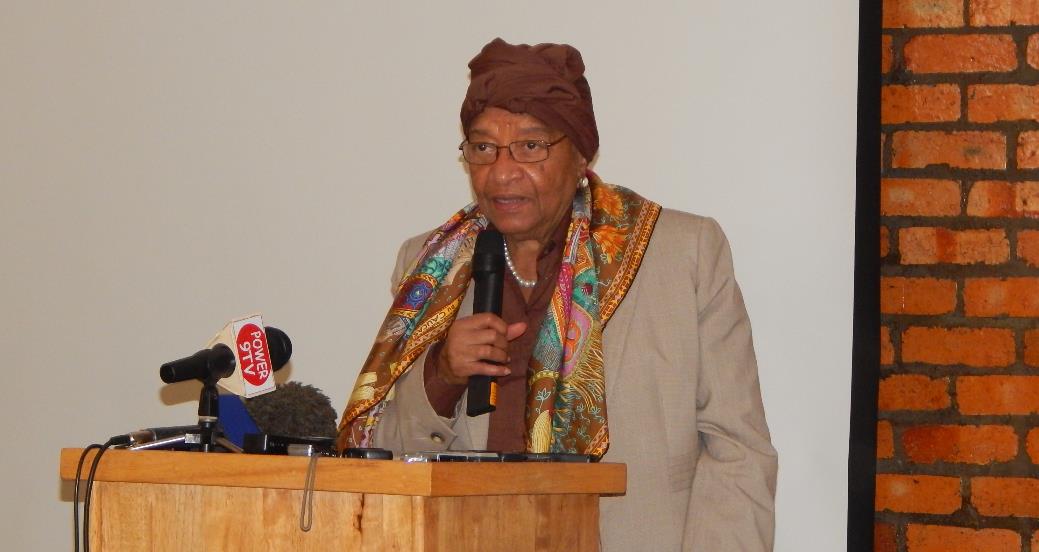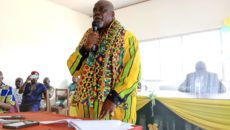MONROVIA, Montserrado – President Ellen Johnson Sirleaf has finally constituted the Office of Ombudsman for the implementation of the Code of Conduct.
The decision was disclosed in an Executive Mansion release on Monday.
Former Police Inspector General, Chris Massaquoi will chair the committee, assisted by Edward Dillon and Massa Jallabah as members.
The Code of Conduct Act provides for the establishment of the Office of an Ombudsman as an independent autonomous body that shall be responsible for the enforcement, oversight, monitoring and evaluation of the adherence to the law.
According to the law, in the case where there is a determination of guilt and Violation of the code by private and public officials and Employees of Government, said violation shall be submitted by the Ombudsman to the Liberia Anti-Corruption Commission or other relevant Agencies of Government.
It says the Office of the Ombudsman shall be responsible for collaborating with the three Branches of Government and Civil Society Organizations in order to develop regulations for the Code of Conduct.
On Tuesday, March 14, Sirleaf issued an executive order specifying some requirements for the Office of the Ombudsman.
The executive order provided clarifications on some details pertaining to the Office of Ombudsman that had not been specified by the law, including the qualification and tenure of the ombudsman.
It specified that the Office of Ombudsman would comprise of three persons to be appointed by the president, with the consent of the Senate.
The body would be required to make quarterly reports to the president and the legislature on progress made in fulfilling its mandate.
Prior to the executive order, there were debates among stakeholders on the implementation of the act.
The debates followed the official signing of the instrument was signed into law by the president, on May 12 in 2014. It was proposed in 2009 by the Executive Branch and passed by both houses of the National Legislature.
The act provides guidance for appointed government officials and employees against actions that would undermine their integrity. Among other things, the law restricts government employees from engaging in corrupt practices and playing active roles in electoral exercises while still serving the posts they were originally appointed.
The act also prohibits officials from engaging in political activities, canvassing or contesting for elected offices, using government facilities, equipment or resources in support of partisan or political activities, or serving on a campaign team of any political party, or an independent candidate.
The key portion of the act under discussion is the one barring public officials from contesting elections if they do not resign from their posts two years prior to the poll date. For tenured positions, the limit is three years.
Many have argued that the law was unfair because it does not include other officials of the government, including representatives and senators.
The dean of the Louis Arthur Grimes School of Law at the University of Liberia, Negbalee Warner, described the Code of Conduct as discriminatory.
Last July, Warner argued before the Supreme Court that the Code of Conduct passed by the National Legislature was completely discriminatory.
Earlier, Bong’s Superintendent Selena Polson Mappy filed a petition before the Supreme Court to declare the code of conduct unconstitutional. Mappy had hoped to contest for representative of Bong’s sixth district.
However, the Supreme Court ruled against her case in March, stating that the law was constitutional.
The high court’s ruling suggests that Mappy and other current and former officials who are affected by the act will not be allowed to contest in the 2017 elections.
Political parties and politicians have been expressing mixed views about the implementation of the law.
The Movement for Economic Empowerment Standard Bearer, Mills Jones argued that he would be a candidate in the October elections, adding that not even “the court of Pontius Pilate†could prevent his participation.
Jones is the immediate former executive governor of the Central Bank of Liberia. He resigned last year from the CBL close to the expiration of his second tenure.
Featured photo by Gbatemah Senah



